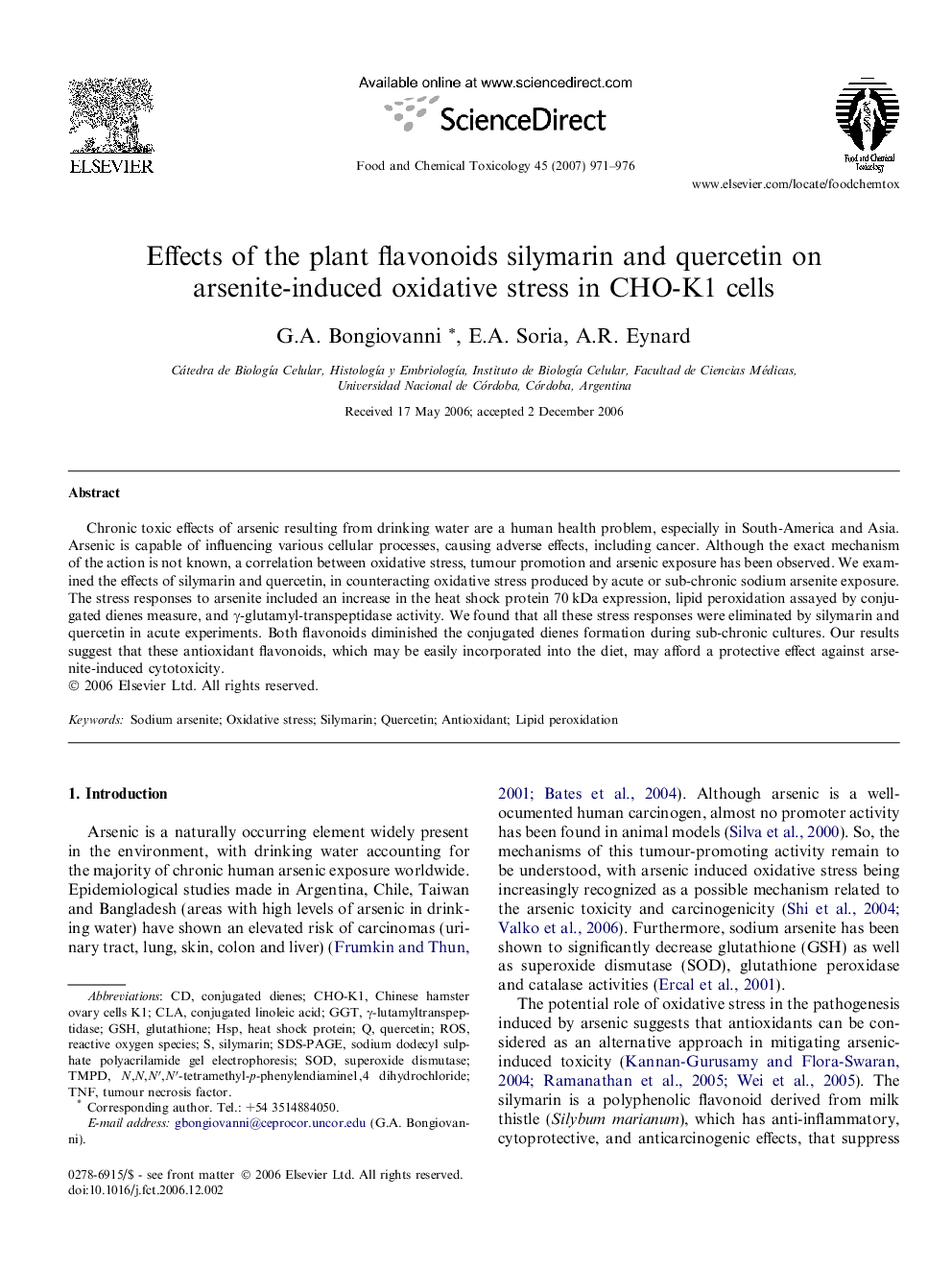| Article ID | Journal | Published Year | Pages | File Type |
|---|---|---|---|---|
| 2588260 | Food and Chemical Toxicology | 2007 | 6 Pages |
Chronic toxic effects of arsenic resulting from drinking water are a human health problem, especially in South-America and Asia. Arsenic is capable of influencing various cellular processes, causing adverse effects, including cancer. Although the exact mechanism of the action is not known, a correlation between oxidative stress, tumour promotion and arsenic exposure has been observed. We examined the effects of silymarin and quercetin, in counteracting oxidative stress produced by acute or sub-chronic sodium arsenite exposure. The stress responses to arsenite included an increase in the heat shock protein 70 kDa expression, lipid peroxidation assayed by conjugated dienes measure, and γ-glutamyl-transpeptidase activity. We found that all these stress responses were eliminated by silymarin and quercetin in acute experiments. Both flavonoids diminished the conjugated dienes formation during sub-chronic cultures. Our results suggest that these antioxidant flavonoids, which may be easily incorporated into the diet, may afford a protective effect against arsenite-induced cytotoxicity.
